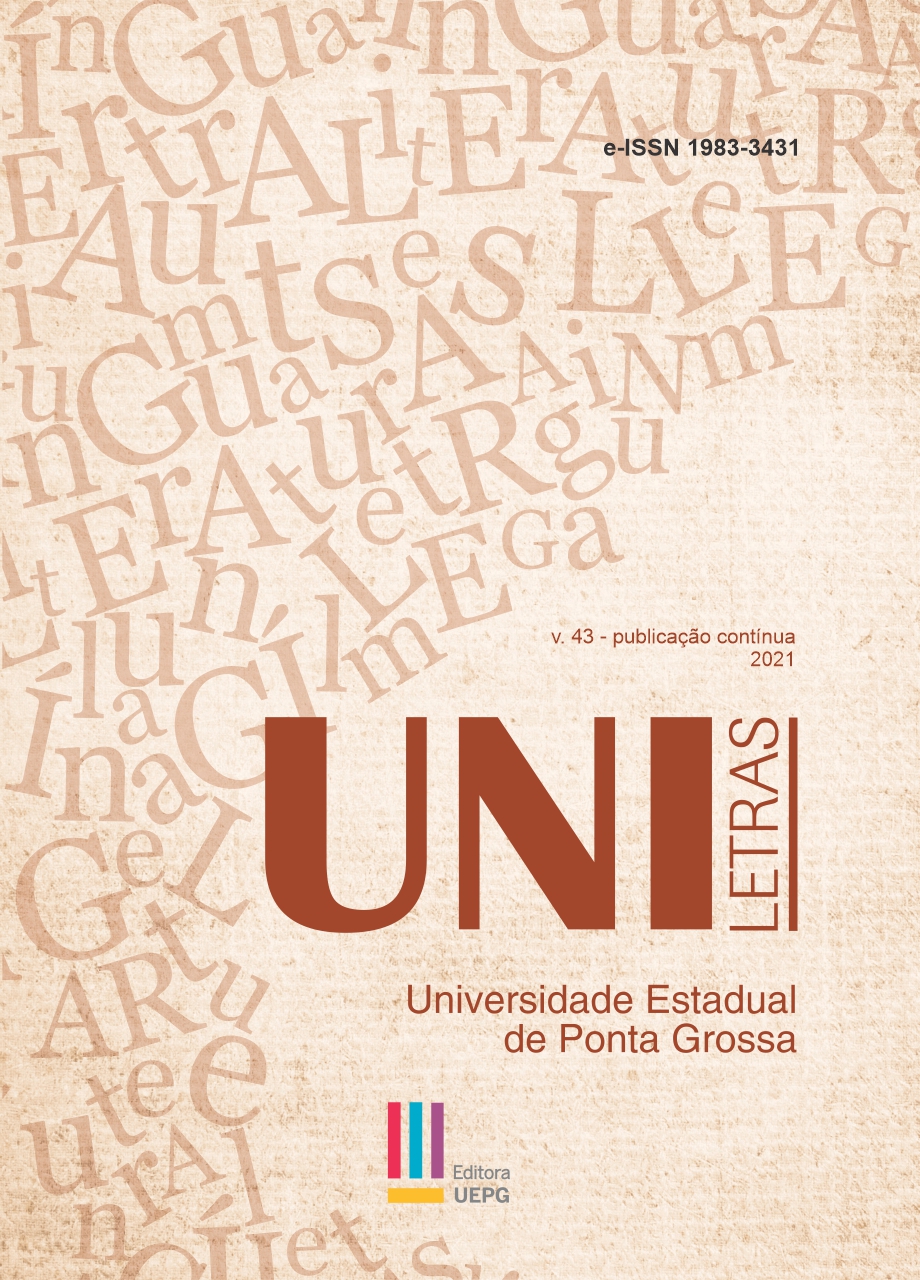ANTHROPHOGICAL MOVEMENTS BETWEEN MPB AND DANCE: POSSIBLE INTERTEXTUAL RELATIONS
Abstract
This article aims to investigate intertextual studies and their possibilities for articulation between different materialities. For that, it uses the concept of Anthropophagy (1928), coming from the Anthropophagic movement, led by the literary Oswald de Andrade in the first generation of Brazilian Modernism. The intention is that this concept will be able to mediate and make possible approximations between MPB, as a literary object, and the German dance-theater of Wuppertal TanzTheater, founded by the dancer/ choreographer Pina Bausch, when subsidized by literary contribution of Carvalhal (1991). The investigated corpus is the Brazilian popular music used in the shows of the company, corroborating in its diverse dance creations, we seek to investigate the intersection between them, both to complex the categories of understanding, and to expand the dialogical possibilities between the different areas.
Downloads
Downloads
Published
Issue
Section
License
Authors that publish in the journal agree with the following terms:
a) The authors keep the copyright and grant to the journal the rights of the first publication, with the work simultaneously being licensed under the Creative Commons Attribution License that allows the sharing of the work with the recognition both of the authorship and the initial publication in this journal.
b) This journal provides immediate public access to all of its content, following the principle that making scientific knowledge freely available to the public provides greater worldwide democratization of knowledge. For more information about this approach, visit Public Knowledge Project, a Project that developed this system to improve the academic and public quality of research, distributing OJS as well as other softwares to support the publication system to public/open access to academic sources. Names and e-mail addresses in this website will be used exclusively for this journal purposes, not being available for other ends.

This work is licensed under a Creative Commons Attribution 4.0 International License.





